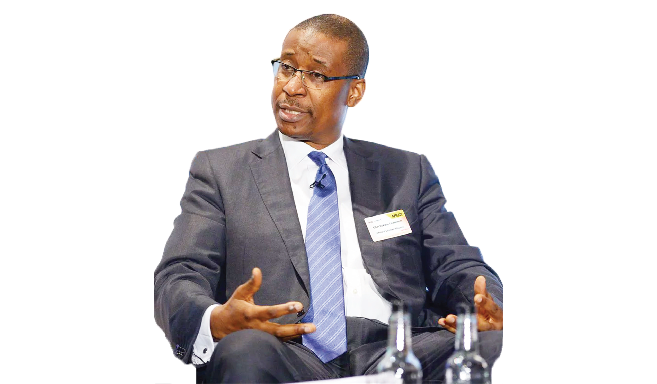The Minister of Industry, Trade and Investment, Dr. Okechukwu Enelamah has said that Nigeria’s ongoing economic challenges offer an unprecedented opportunity to restructure and diversify the economy.
Speaking on Tuesday on Channels Television’s Sunrise Programme, the Minister said, “I believe that depending on what we do with this crisis we’re facing, it could actually be the impetus for this diversification. It’s extremely important that we make the most of what we’re going through.”
The Minister highlighted the Ministry’s commitment to implementing the Nigeria Industrial Revolution Plan (NIRP), as a tool for diversifying the Nigerian economy.
“That Plan identifies sectors where Nigeria should be doing more, but for reasons that are well understood, we haven’t. Our responsibility as a Ministry is to make sure that Plan is implemented; from Agro-processing to the automotive industry; Cotton, Textile and Garments; and Petrochemicals – the sectors around which we have a comparative advantage.”
Speaking on some other reform efforts, Dr. Enelamah highlighted the Ministry’s Ease of Doing Business Initiative. “The President has directed that we set up a Council, the Presidential Enabling Business Environment Council (PEBEC), chaired by the Vice President, and that is focused majorly on making Nigeria more attractive for investment.”
“A lot of work has gone on behind closed doors. The Nigeria Investment Promotion Commission (NIPC) is going to be the Secretariat. We’ve said that in the first year we want to move at least 20 spots ahead on the World Bank’s Ease of Doing Business rankings.”
“We have identified a private sector Lead, who will be announced soon, who is going to be the head of this Ease of Doing Business Forum. We’ve also identified private sector firms that are experts in it, and we’ve identified someone who led it in another country – Georgia – he’s a former Prime Minister, who’s come to help us. I’m confident we’ll get results.”
Dr. Enelamah also touched on the Ministry’s commitment to SMEs, highlighting the new microcredit scheme in the 2016 budget, which will see the Bank of Industry, one of the Ministry’s parastatals, overseeing the disbursement of loans to 1.6 million traders, artisans, farmers and young entrepreneurs over the next twelve months.
He stressed that the current government takes policy stability and consistency very seriously. “We haven’t done the classic policy flip-flops. The things that are [already existing] we have said we will implement them better.”
“For instance the Nigeria Industrial Revolution Plan (NIRP), which is something that we inherited from the last government. Also what the NIPC is doing for investors.”
The Ministry, he added, is also focused on ensuring “that only genuine manufacturers enjoy” already existing import and export concessions.
“It takes time for these things to take root. There is a time for implementation and a time for results. My view is that Nigeria is definitely going to get better; in the area of diversification of the economy, and of investors coming in, it will happen,” he said.














